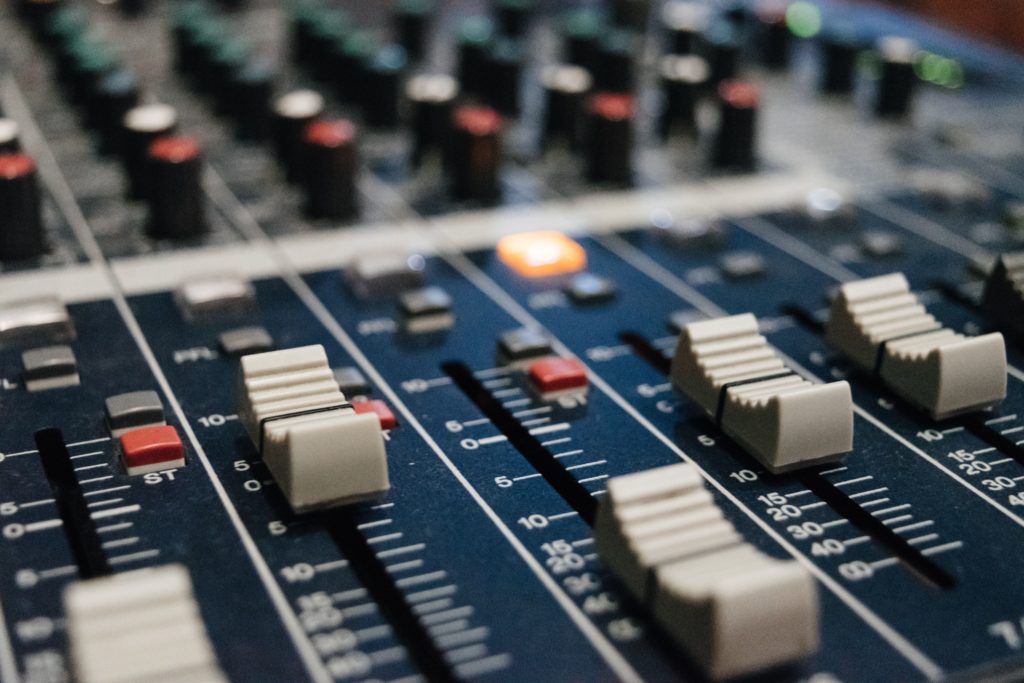Individuals and organizations who make money by writing songs and musical compositions, producing and selling recorded music and sheet music, and presenting concerts, as well as organizations that help, train, represent, and supply music makers, make up the music business. Songwriters and composers who write songs and musical compositions; vocalists, musicians, conductors, and bandleaders who perform the music; record labels, music publishers, recording studios, and music producers audio engineers, retail and digital music stores, and performance rights organizations who create and sell recorded music and sheet music; and the booking agents, promoters, and musicians who perform the music are among the many individuals and organizations that operate in the industry.

Something unites Blue Microphones, JZ Microphones, Sonarworks, Gamechanger Audio, and Erica Synths. They’re all producing high-quality products. Their products are used by the world’s biggest music performers and record artists. And they’re all Latvian businesses, formed in a country with a population of just under two million people and no major music stars.
While other countries produce hits, Latvian businesses create the technology and tools required to record them.
Gamechanger Audio’s guitar pedals are used by rock luminaries such as The Rolling Stones and Richard Z. Kruspe (Rammstein).
Mark Needham, an 11-time Grammy nominee who has worked with Pink, Shakira, Elton John, and other big-name musicians, uses and recommends Sonarworks’ sound calibration system. Many artists, like Imagine Dragons, who are currently one of the best-selling bands, have long preferred Blue Microphones.
How did a country you’ve never heard of in the context of the music industry become one of the major sound tech hubs?
In Latvia, people appreciate music
Some in the Latvian music-tech community believe the country’s success is due in part to the country’s interest in traditional music.
In Latvian culture, dainas are small quatrains of ancient Latvian wisdom captured in song and passed down from generation to generation. The Latvian Song and Dance Festival is a national cultural phenomenon that brings together tens of thousands of people to sing in a single choir once every five years.
Children are taught to value this national legacy from an early age, and anyone who can carry a tune is placed in a school choir. The choir was even a necessary subject in the 1990s, beginning in the first year of primary school, just like math and science studies. Although the country no longer has any international pop stars, its name is well-known among choral communities around the world.
“We portray ourselves as the singing nation, and music has always been a vital part of our daily lives,” says Kaspars Zavileiskis, a Latvian music writer and DJ.
Latvians are likewise eager to pass on their musical appreciation to future generations. Babbit founders and CEO Aleksandrs Roga says he’s always been an audiophile who can’t fathom his existence without music. He now owns a sound tech firm with his wife, and they’ve created a Hi-Fi sound system for youngsters.
According to the creator, this high-tech toy helps children “develop their taste in music and appreciation of quality sound” from an early age.
Latvian startups have access to tech know-how
However, interest in and appreciation for good music is only a small part of the country’s success in music technology. The other is the availability of technical talent.
Riga was known as the regional center of technology – electronics, mechanical engineering, and more – as early as the 19th century. The State Electronic Factory (VEF) was a well-known electronics company, best known for producing radios.
VEF, like many other factories, went bankrupt after Latvia gained independence from the Soviet Union in the 1990s because it was unable to compete with international competition. However, the engineering know-how was passed down the generations, laying a solid foundation for future generations.
Today, new tech talent is cultivated in Latvian institutions that not only provide a strong STEM (science, technology, engineering, and mathematics) education but also support entrepreneurs in developing new products and business ideas.
The physical infrastructure of Latvia allows for the development of high-tech products.
On top of that, Latvia has developed a strong infrastructure for manufacturing electronic and technological goods.
“Startups can outsource product manufacturing to one of our six massive, highly qualified plants.” “ As a result, small businesses may afford to participate because they don’t require large quantities of orders. goods to life,” Girts Ozolins, board member of the Latvian Electrical Engineering and Electronics Industry Association (LETERA), and the man behind Erica Synths, adds.
One of Latvia’s best-kept secrets, according to Ozolins, is the availability of manufacturing services. Meanwhile, demand for Latvian-made sound tech is growing in tandem with the music industry’s overall growth.
There are a lot of artists, producers, and people who record music who want new, high-tech equipment. And Latvian manufacturers are capable of producing such small-batch, high-end audio equipment,” he argues.
As a result, we’ve reached the stage when a Latvian is responsible for the sound of a huge number of international hits.







